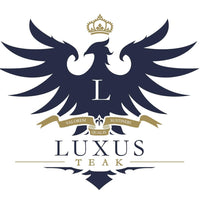14 March, 2023
Posted by
Rowan Grey
Vorsicht vor Nachahmungen!
Teakholz wird wegen seiner vielfältigen Verwendungsmöglichkeiten weltweit sehr geschätzt. Aufgrund seiner Widerstandsfähigkeit gegen Feuchtigkeit und Fäulnis ist es vor allem im Außenbereich ein beliebtes Material. Teakholz wird unter anderem für Terrassen, Yachtböden oder Liegestühle verwendet, die den Witterungseinflüssen standhalten müssen. Obwohl Teakholz aus Plantagen eine erschwinglichere, nachhaltigere und leichter zugängliche Option ist als altes Teakholz aus gefährdeten südostasiatischen Wäldern, gibt es einige Holzprojekte, bei denen anstelle von Teakholz eine andere Form von Hartholz verwendet werden kann. Diese alternativen Harthölzer haben eindeutige Vor- und Nachteile, und nur ein erfahrener Holzexperte kann entscheiden, ob eines von ihnen wirklich für ein Projekt geeignet ist, bei dem die einzigartigen Eigenschaften von Teakholz gefragt sind.
Shorea
Aus den umkämpften Regenwäldern Südostasiens stammt die nächstliegende Alternative zu Teak: Shorea. Dieses besondere tropische Hartholz hat ein ähnliches Gewicht und eine ähnliche Härte wie Teak und eine vergleichbare Dichte. Es hat eine enge Maserung und eignet sich für detaillierte Schnitzarbeiten. Dank seines hohen Ölgehalts ist es weitgehend resistent gegen Fäulnis und Insektenbefall. Im frischen Zustand hat Shorea einen leicht goldenen Farbton, der durch eine schnelle Lackierung beibehalten werden kann. Unbehandelt verblasst die Farbe mit der Zeit zu einem silbrigen Grauton, der dem von älterem Teakholz nicht unähnlich ist.
Trotz seiner vielen Ähnlichkeiten mit dem teureren Holz ist Shorea aufgrund der einfachen Gesetze von Angebot und Nachfrage erschwinglicher als Teak. Trotz der steigenden Nachfrage von Käufern, die nach brauchbaren Alternativen zu Teak suchen, können die Shorea-Plantagen ausreichende Mengen an Holz liefern, um ihren Bedarf zu decken.
Im Gegensatz zu seinem teureren Gegenstück unterliegt Shorea-Holz schon seit längerer Zeit strengeren Vorschriften für die Holzernte, so dass die Shorea-Bestände in Südostasien ausreichend geschützt sind. Solange Investoren nicht das nötige Kapital bereitstellen, um Teakplantagen so weit zu verbreiten wie Shorea, liegt der größte Vorteil des alternativen Hartholzes in seiner Verfügbarkeit.
Aus den umkämpften Regenwäldern Südostasiens stammt die nächstliegende Alternative zu Teak: Shorea. Dieses besondere tropische Hartholz hat ein ähnliches Gewicht und eine ähnliche Härte wie Teak und eine vergleichbare Dichte. Es hat eine enge Maserung und eignet sich für detaillierte Schnitzarbeiten. Dank seines hohen Ölgehalts ist es weitgehend resistent gegen Fäulnis und Insektenbefall. Im frischen Zustand hat Shorea einen leicht goldenen Farbton, der durch eine schnelle Lackierung beibehalten werden kann. Unbehandelt verblasst die Farbe mit der Zeit zu einem silbrigen Grauton, der dem von älterem Teakholz nicht unähnlich ist.
Trotz seiner vielen Ähnlichkeiten mit dem teureren Holz ist Shorea aufgrund der einfachen Gesetze von Angebot und Nachfrage erschwinglicher als Teak. Trotz der steigenden Nachfrage von Käufern, die nach brauchbaren Alternativen zu Teak suchen, können die Shorea-Plantagen ausreichende Mengen an Holz liefern, um ihren Bedarf zu decken.
Im Gegensatz zu seinem teureren Gegenstück unterliegt Shorea-Holz schon seit längerer Zeit strengeren Vorschriften für die Holzernte, so dass die Shorea-Bestände in Südostasien ausreichend geschützt sind. Solange Investoren nicht das nötige Kapital bereitstellen, um Teakplantagen so weit zu verbreiten wie Shorea, liegt der größte Vorteil des alternativen Hartholzes in seiner Verfügbarkeit.
Iroko
Iroko, auch bekannt als "afrikanisches Teakholz" oder Kambala, ist ein extrem zähes Hartholz aus Westafrika, das manchmal auch als "Teakholz des armen Mannes" bezeichnet wird. Es hat ähnliche Eigenschaften, darunter Stärke, Härte und Widerstandsfähigkeit. Iroko wird in der Regel bis zu 150 Fuß hoch und hat einen Durchmesser von 7 Fuß, so dass eine große Menge Holz für die Ernte zur Verfügung steht. Iroko ist zwar weniger biegsam als Teakholz, aber für die meisten Anwendungen im Freien kann diese Eigenschaft vernachlässigt werden. Iroko ist ein mineralienhaltiges Holz und daher abrasiv gegenüber Schneidwerkzeugen, aber mit der richtigen Ausrüstung lässt sich dieses Manko ausgleichen.
Mit seinem mittelbraunen Kernholz, dem helleren Splintholz und der gewellten Maserung sieht Iroko anders aus als Teak. Es kann auf Hochglanz poliert werden, was seinen warmen goldbraunen Farbton unterstreicht. Obwohl Iroko in der Schifffahrt noch nicht weit verbreitet ist, ist es aufgrund seines Preises - etwa ein Drittel des Preises von Teakholz - eine attraktive Alternative, die man in Betracht ziehen sollte.
Bitte beachten Sie diese Punkte, wenn Sie sich im Internet billigere Angebote ansehen, die vorgeben, Teakholz zu sein, denn es gibt viele Schreckensmeldungen von Kunden, die ein minderwertiges Produkt erhalten haben. Bei Luxus haben wir uns ausschließlich auf hochwertige Teakholzmöbel spezialisiert.
Iroko, auch bekannt als "afrikanisches Teakholz" oder Kambala, ist ein extrem zähes Hartholz aus Westafrika, das manchmal auch als "Teakholz des armen Mannes" bezeichnet wird. Es hat ähnliche Eigenschaften, darunter Stärke, Härte und Widerstandsfähigkeit. Iroko wird in der Regel bis zu 150 Fuß hoch und hat einen Durchmesser von 7 Fuß, so dass eine große Menge Holz für die Ernte zur Verfügung steht. Iroko ist zwar weniger biegsam als Teakholz, aber für die meisten Anwendungen im Freien kann diese Eigenschaft vernachlässigt werden. Iroko ist ein mineralienhaltiges Holz und daher abrasiv gegenüber Schneidwerkzeugen, aber mit der richtigen Ausrüstung lässt sich dieses Manko ausgleichen.
Mit seinem mittelbraunen Kernholz, dem helleren Splintholz und der gewellten Maserung sieht Iroko anders aus als Teak. Es kann auf Hochglanz poliert werden, was seinen warmen goldbraunen Farbton unterstreicht. Obwohl Iroko in der Schifffahrt noch nicht weit verbreitet ist, ist es aufgrund seines Preises - etwa ein Drittel des Preises von Teakholz - eine attraktive Alternative, die man in Betracht ziehen sollte.
Bitte beachten Sie diese Punkte, wenn Sie sich im Internet billigere Angebote ansehen, die vorgeben, Teakholz zu sein, denn es gibt viele Schreckensmeldungen von Kunden, die ein minderwertiges Produkt erhalten haben. Bei Luxus haben wir uns ausschließlich auf hochwertige Teakholzmöbel spezialisiert.





